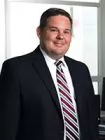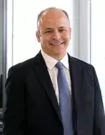The Supreme Court recently granted a petition for writ of certiorari to review the Federal Circuit's en banc decision in Impression Products, Inc. v. Lexmark International, Inc., --- F.3d --- (Fed. Cir. 2016). The Lexmark case deals with the judicial doctrine of patent exhaustion, the doctrine whereby a patentee's right to prevent the sale of a product is exhausted with a first authorized sale. In its en banc decision, the Federal Circuit held that: (1) a patentee may limit the resale of a patented article provided those restrictions are lawful and communicated to the buyer at the time of sale, following its prior decision in Mallinckrodt, Inc. v. Medipart, Inc., 976 F.2d 700 (Fed. Cir. 1992); and (2) the patentee's sale or authorization for sale of a U.S.-patented article abroad does not authorize the buyer to import the article and sell and use it in the U.S., following its holding in Jazz Photo Corp. v. International Trade Comm'n, 264 F.3d 1094 (Fed. Cir. 2001). The Supreme Court's opinion will address these two points and could impact long-standing precedent.
As set forth in the Federal Circuit decision, Lexmark makes and sells printers and toner cartridges for its printers. Lexmark owns a number of patents that cover its cartridges and their use. The cartridges at issue in this case were first sold by Lexmark, some abroad and some in the United States. Some of the foreign-sold cartridges and all of the domestically sold cartridges were sold subject to an express single-use/no-resale restriction. Impression later acquired the cartridges at issue in order to resell them in the U.S. after a third party physically modified them to enable re-use in violation of the single-use/no-resale provision. Impression resold the patented Lexmark cartridges in the U.S. and imported those that it had acquired abroad. Lexmark did not give Impression affirmative authorization to resell and reuse the cartridges.
In its petition for certiorari, Impression does not dispute that it infringed Lexmark's patents but argues that it is protected under the doctrine of patent exhaustion. In particular, Impression argues that the Supreme Court's ruling in Quanta Computer, Inc. v. LG Electronics, Inc., 553 U.S. 617 (2008) overruled the Federal Circuit's holding in Mallinckrodt. It also argues that Kirtsaeng v. John Wiley & Sons, Inc., 133 S. Ct. 1351 (2013), a Supreme Court case permitting copyrighted articles purchased outside the United States to be imported by their owners "without the authority" of the copyright holder should be expanded and applied to instances of patent exhaustion.
The Acting Solicitor General filed a brief on behalf of the federal government as amicus curiae supporting the grant of the petition for writ of certiorari. The Acting Solicitor General argued that: (1) for more than 150 years, once a patented article has been sold in the United States with patentee's authorization, the patent laws have not constrained the subsequent use or resale of the article and the Federal Circuit's decision substantially erodes this long standing doctrine; and (2) the Federal Circuit erred in reaffirming the decision in Jazz Photo that foreign sales never exhaust U.S. patent rights, and should instead follow the prior rule that an authorized foreign sale exhausts U.S. patent rights unless the patentee expressly reserved those rights.
Implications
Until these issues are resolved, patentees should look to minimize the threat of patent exhaustion by using post-sale restrictions and possibly using licenses rather than sales agreements in appropriate contexts.
This article is intended to provide information of general interest to the public and is not intended to offer legal advice about specific situations or problems. Brinks Gilson & Lione does not intend to create an attorney-client relationship by offering this information and review of the information shall not be deemed to create such a relationship. You should consult a lawyer if you have a legal matter requiring attention. For further information, please contact a Brinks Gilson & Lione lawyer.


